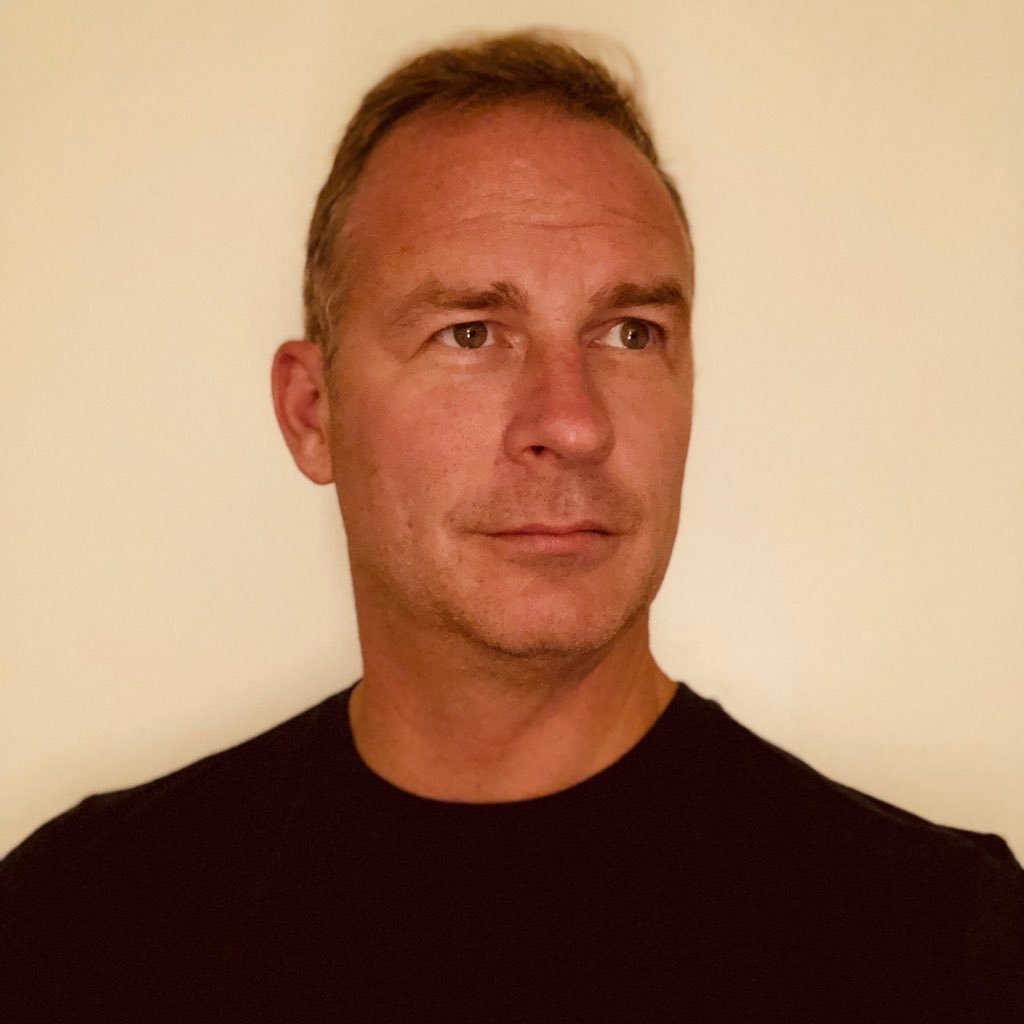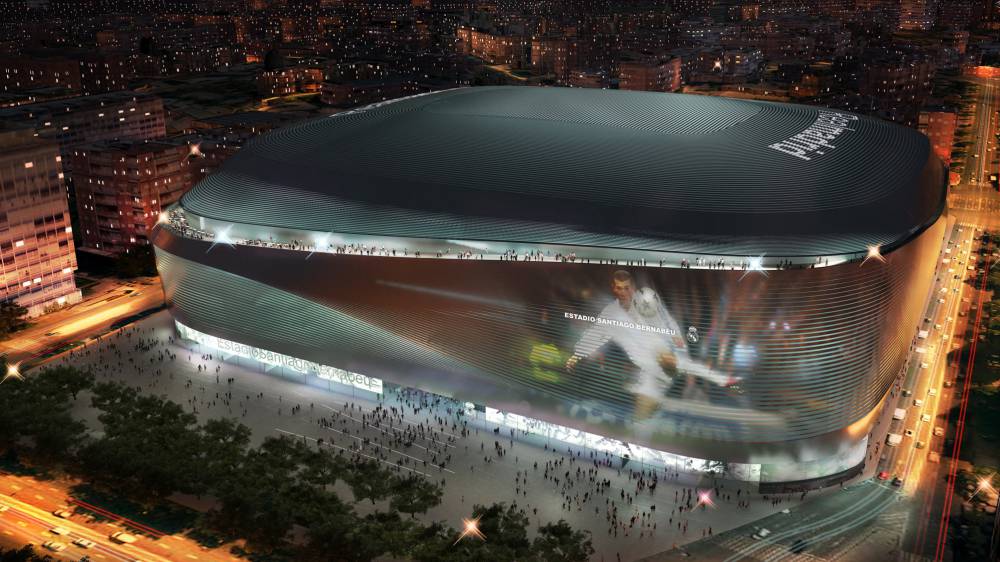Two months ahead of his participation in WFS19, we sat down with David Hopkinson, Global Head of Partnerships at Real Madrid, to pick up his impressions after his first year at the club and discuss the differences between the North American and European sport industry, the way the new Bernabeu Stadium can change the face of the club and how excited he is to see a women’s team play under club’s banner for the first time in history.
P. Real Madrid is globally recognized for its unique essence. After almost a year at the club, do you think you fully understand those values that make the club different?
A. I think I understand a lot about it, but I’m still learning. When I was preparing to come, I read Steve Mandi’s book “The Real Madrid Way”, which is a book that really focuses on articulating the club’s values. I found that incredibly powerful, incredibly attractive, and it was one of the reasons I came here. I’m still in the process of learning. About a year in, I feel like I got a good work in understanding the importance of those values, the importance of commitment to excellence, a commitment to championships, a commitment to always giving your best, a commitment to never giving up. And I see that set of values and forms of behaviours, not just as a football club, also in the people who work here at Real Madrid.
 P. Can those unique values limit the club’s growth in some way? I mean, growing the brand while at the same time sticking to its deep roots and traditions must be a challenge?
P. Can those unique values limit the club’s growth in some way? I mean, growing the brand while at the same time sticking to its deep roots and traditions must be a challenge?
A. I don’t think it limits; I think it actually opens up an entirely new suite of opportunities. Our values not only are the ones we articulate, but some of the things that make us different. This is a member-owned club. The purpose of this organization is to win and do good in the world. There are some sports organisations whose purpose is to make some rich guy even richer. That isn’t what we do here, there’s no misalignment between what we say we are trying to do and what we are actually doing. We are completely aligned. That essence of our set of values is actually really attractive for organisations to partner with.
P. But introducing changes at a club with the history of Real Madrid is not easy. How many times have you heard: “This is not the way we do things here”?
A. I think it’s about how we frame the issue in front of us. Real Madrid has a global opportunity. This is the most popular club in the world in the most popular game in the world. We truly have a global opportunity. I know that each and every one of our members and each and every one of our fans only want to see the club grow. To the extent to which we can grow and respect the values of the club, respect the tradition of the club, I think there’s no issue whatsoever. To the extent to which sometimes we need to look at the impact of what big data can do for our organisation, what does the global opportunity we have on social media, what can that do for the organisation. These are some things that are new, do represent change but are only positive and only align with the growth of the club.
P. Monetizing the millions of fans clubs have worldwide is arguably football’s major challenge. Where do you think the new sources of revenue will come from in the future?
A. If we look at partnerships and global partnerships, our opportunities are uncapped. It truly is. The ability of sports to attract an audience at scale is totally unique. It’s very, very hard for marketers, advertisers, CMO’s to buy things that matter to people at scale anymore. In an increasingly fragmented world, it’s hard to attract big audiences. Fortunately, we attract really big audiences and that makes us attractive to partner with. The more we can do to internationalise our business, internationalise our reputation, internationalise our fan base, globalise this business, the more opportunities we will have with partnerships around the world.
P. The new Santiago Bernabéu is one of the club’s biggest projects. To what extent do you think the stadium can transform the club?
A. I think it will be a huge transformation. If you look at the history of this club, over the past 117 years, what a huge turning point was the construction of the Bernabéu. It unlocked new chapters of growth in the club’s history. And we are going to do the exact same thing here. I’m excited about this because this is not only a renovation, it’s such an extensive renovation it borders on a rebuilding and this will be a true modernisation of the facility. Retractable roof, premium amenities, whole different suite of fan experiences and unlock everything that we can do digitally to change the way our fans experience the match. I think this is going to be a pivotal moment in the long history of this club.
P. What impact will the new Santiago Bernabéu have on attracting new partners?
A. Facilities really matter, buildings matter. And when we think about iconic clubs around the world, you think very quickly about where they play their home matches, where their home is. This is the opportunity for us to change how the world sees us in many ways, to show that we are, yes, a club with deep tradition and strong foundation, but also poised to thrive in the future, building a future forward building. A club that is listening to our fans and taking care of our fans and members and building them a home that not only they will be very proud of, but one that is going to increase their experience and their enjoyment in every single match. A place for them to go to take a whole new set of memories and a state-of-the-art iconic sport facility that will change sport. I think this building is going to, once it’s completed, change the face of football globally and certainly change the face of Madrid, both in and outside of sport.
P. While at Maple Leaf Sport & Entertainment, you were responsible for signing one of the biggest naming deals in the history of North American Sport when the Air Canada Centre was renamed Scotiabank Arena. Santiago Bernabeu is almost a sacred figure for Real Madrid fans. Will the stadium change its name at some point?
A. I think anything is possible, but we are not working on that right now. My personal view is that we have an extraordinary set of revenue opportunities that don’t involve changing the name of the stadium. I’m not sure if putting a corporate name on would be the right thing, in fact it would probably be the wrong thing. There are certain venues around the world that are so iconic, such as ours, Old Trafford, Madison Square Garden, they won’t benefit from a corporate name. My belief is that Estadio Santiago Bernabeu is one of those.
P. In North America matches are part of a bigger show that takes place in the stadium that involves music, dancing, etc. Why do you think these types of things that are so popular in North American sports haven’t worked yet in European Football?
A. I think you need to make your audience happy, it’s about the fan experience. I’ve been privileged in my last job to work with two different franchises: one in the NBA, the Raptors which are 24 years old, and the Maple Leafs, which are 103 years old. One is very iconic, very traditional franchise and one that was an up-start NBA franchise. We ran very different shows, very different entertainment experiences. At the NBA experience: lots of music, high energy, dance team, mascot, a traditional NBA show. But a hockey show is different, the music is different, the mascot use is different, no dancers… I think what we need to do is see what works for this audience. I think that we will try some things, and I think some things are going to work very well right out of the gate, I think some things will work well over time and I think some things won’t work, that the audience will just reject. I think this will be a learning experience for all of us. But that’s ok. We got to try things, we got to experiment, we got to build our successes and try to understand why some things failed.
P. What impact can the future women’s team have for the club?
A. I’m thrilled about it. To me, this is an expression of the values of the club. Inclusion matters. This is a way of really putting a stake in the ground and to demonstrate our commitment to inclusion, our commitment to equality, our commitment to social good values. I’m excited. I’m excited to see them play under our banner, I’m excited to be a part of this. I’ve also spoken to multiple partners, both existing and perspective who are equally thrilled and are saying to us: “We needed you to do this”.
P. When you leave Real Madrid, what would you like to be remembered for?
A. This is a pivotal moment in the organization as we are in the middle of transforming the roster right now, we are in the middle of transforming the business, we are also transforming the stadium and stadium experience. I think 5 years from now we will have a club and a business that’s quite different from the one we have today, in a different home and doing things in a different way. And I would like to be remembered as one of the architects that helped making that a success.
